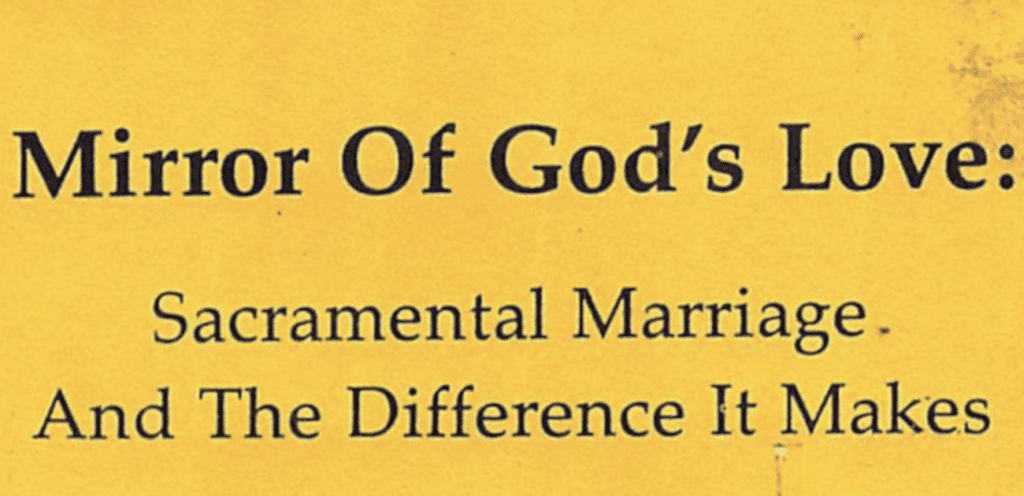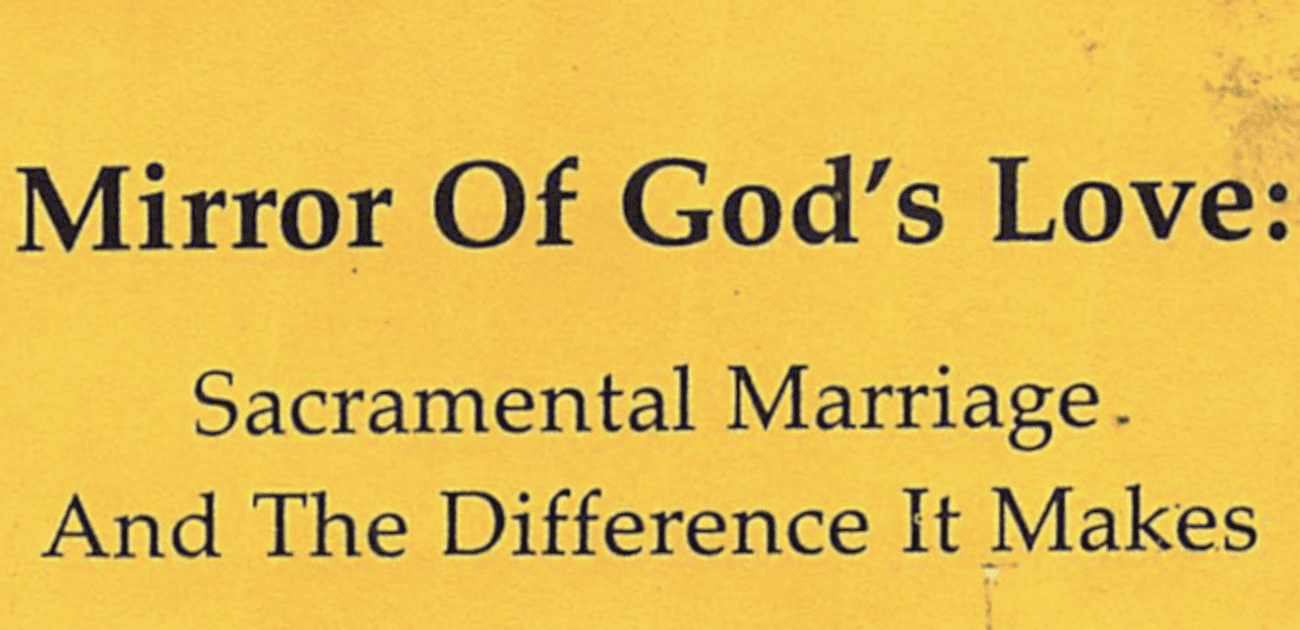Catholic Families: Are they Mirrors of God’s Love?
This Vincentian Mindwalk started out as a virtual journey to Rome for the 10th World Meeting of Families in 2022.
To my surprise, it developed into a reflection on what the church can learn from “happy marriages.”

I have had a life-long interest in the family as an image of the sacramental marriages as “Mirrors of God’s Love” or the “church in miniature”.
“The love of man and woman is made holy in the sacrament of marriage and becomes the mirror of your everlasting love” (Rite of Marriage, Preface C, no. 117)
I discovered a series of some ten articles by Greg Popcak. No wonder he and his wife were asked to present the opening keynote in Rome.
I am glad I joined the pilgrimage, even if I never left the comfort of my keyboard and computer screen.
Are Catholic Families Different?
In 2014, he asked, “Are Catholic Families Different?” His answer was, unfortunately, no. They have lost a sense of family life and been offered no catechesis about what that difference could be.
When he reminded his readers of a saying almost 2000 years ago, I was hooked… “The world says, ‘Look at those Christians! See how they love one another!”
This brought me back to the concept of sacramental marriages as “Mirrors of God’s Love,” the title of my first published reflection (see graphic for this post) with my colleague JoAnn Heaney-Hunter.
Popcak writes…
In order for our faith to seem relevant to our children and the world at large, Catholic couples and families must present a vision of love that both shows our children the ability of our Catholic faith to satisfy the longings of their heart and makes the world stand up and take notice.
Another way of saying, the world will stand up and take notice when they see families that “mirror God’s love”.
I found his reflections on the “liturgical rites” of the “domestic church’ helpful
Habits of Healthy Marriages
As a practicing marriage therapist, he also offers his thoughts on eight habits of healthy marriages.
One of these habits really caught my attention.
Happy couples know that the most important thing in problem-solving isn’t actually solving the problem. The MOST important thing in problem-solving is taking care of each other so that they can solve the problem together.
In a sense, the other habits are about taking care of each other.
Happy couples know how to learn from their disagreements.
- They are able to go back over arguments and offenses in a way that helps them learn to do better next time.
- They don’t blame and attack each other or endlessly debate what “really” happened last time.
- They focus on what they need to do to handle similar situations better in the future.
Problem-solving in the Church
Often, as I read his down-to-earth thoughts about happy marriages, I thought of Pope Francis’ challenge to the wider family to embrace all families. Jesus taught us to pray “Our Father,” Is this not implicitly calling every member of the church to reflect on living as God’s family.
If we as a church are to be taken seriously, then we must live in such a way that the world will again say, ‘Look at those Christians! See how they love one another!”
If we as Church learn to take care of each other and solve our problems together, it will lead to the world taking us seriously.
Isn’t this what “Evangelization” and the “synodal journey” are all about?
Are we willing to take care of each other, especially by listening?
Originally posted on Vincentian Mindwalk
Tags:







0 Comments